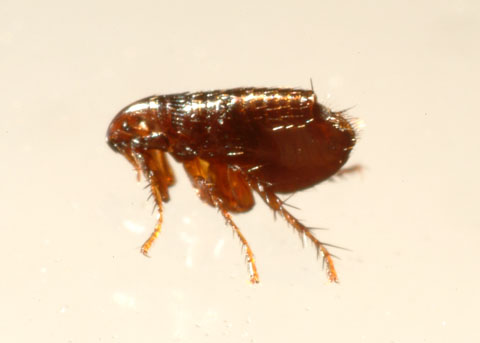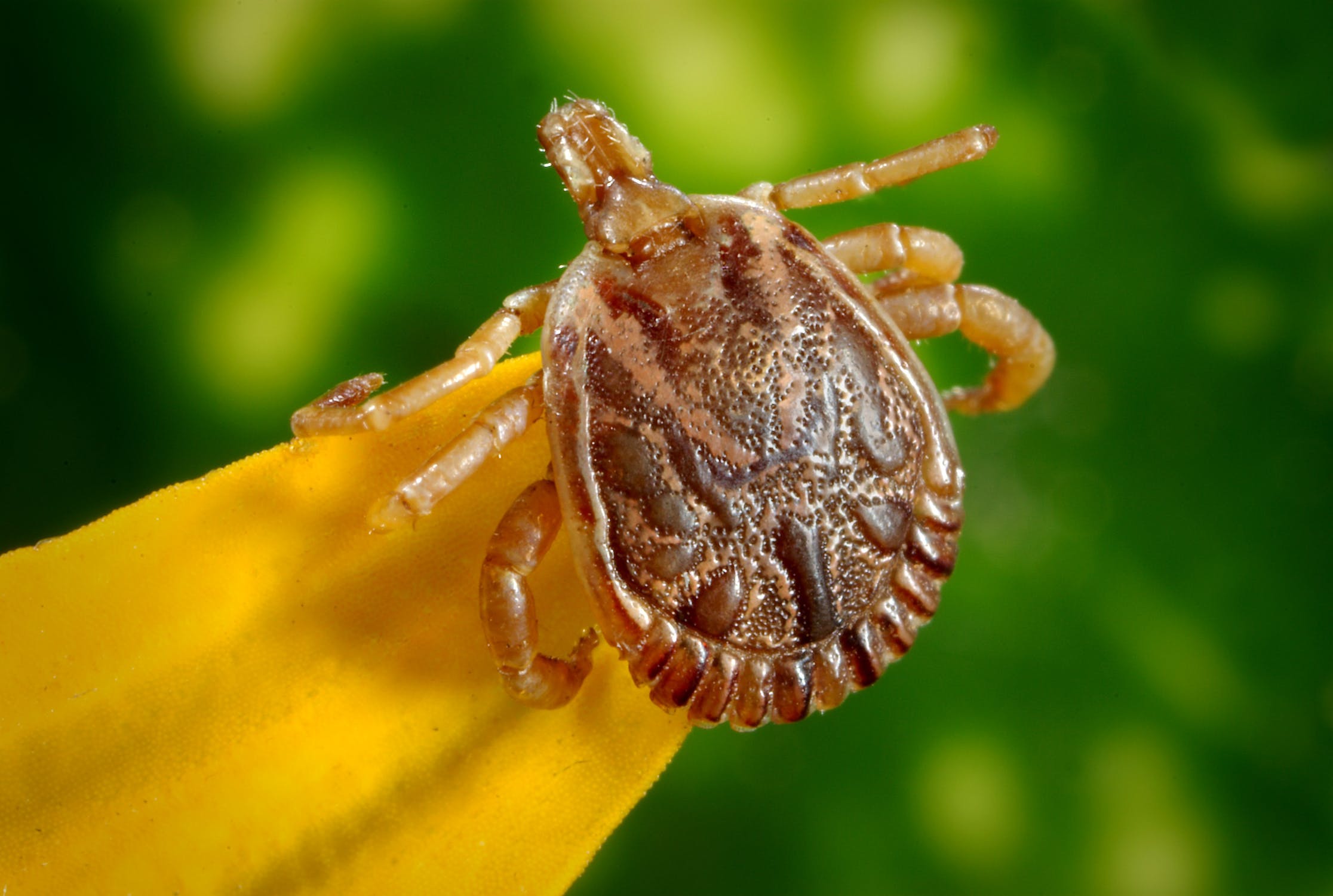
BLOG
Fleas. Ticks. Trouble.
Merritt Milam | June 30, 2019
In Alabama, flea and tick season is a year-round problem. However, the warmer months are when these pests are most active. It’s important to make sure your pets are on a year-round preventative to keep these parasites from becoming a health risk. Here are some key facts and information to help you prepare for the active summer season.

Signs and Symptoms
Knowing what to look for is the first step in helping prevent misery from fleas and ticks in your home and on your pets.

Flea
Signs of fleas for both dogs and cats include droppings (small, dark grains) in their fur, flea eggs (tiny, white grains), constant scratching or licking, irritated skin, hair loss, scabs, and pale gums.
Ticks are larger and more visible to the naked eye. They are most commonly found around the ears, head, and feet, but could be anywhere on a pet’s body.
Potential Dangers
Flea infestations can cause anemic complications, pruritis (an intense itching caused by flea bites), tapeworm infestation, open sores, and secondary bacterial infections. Ticks are capable of causing paralysis and anemia. They also carry diseases such as Lyme disease (a bacterial infection) which can cause serious health complications like kidney failure.
Prevention
The first, and best, step in preventing these parasites from causing distress and health problems for your pets is with the use of veterinary-approved preparations. Talk to your vet about the best treatment options for your pets.

Tick
In addition to medications, here are a few preventative tips to keep your furry friends safe.
- Regularly inspect your pets and yourself for ticks after walks through the woods or grassy areas.
- Keep grass mowed as short as possible.
- When you treat your pets, also treat the surrounding area.
- If you have multiple pets, treat them at the same time to prevent cross infestation.
Wags: Fleas & Ticks Not Allowed
Wags ‘N Whiskers wants all our furry friends to be happy and healthy. To ensure their experience is free of fleas and ticks, Wags requires all boarding and day care pets to currently on a preventative preparation. This helps reduce the chance of spreading these parasites to other Wags’ pets and their families.
For more information about flea and tick prevention visit ASPCA.org (https://www.aspca.org/pet-care/general-pet-care/fleas-and-ticks).


